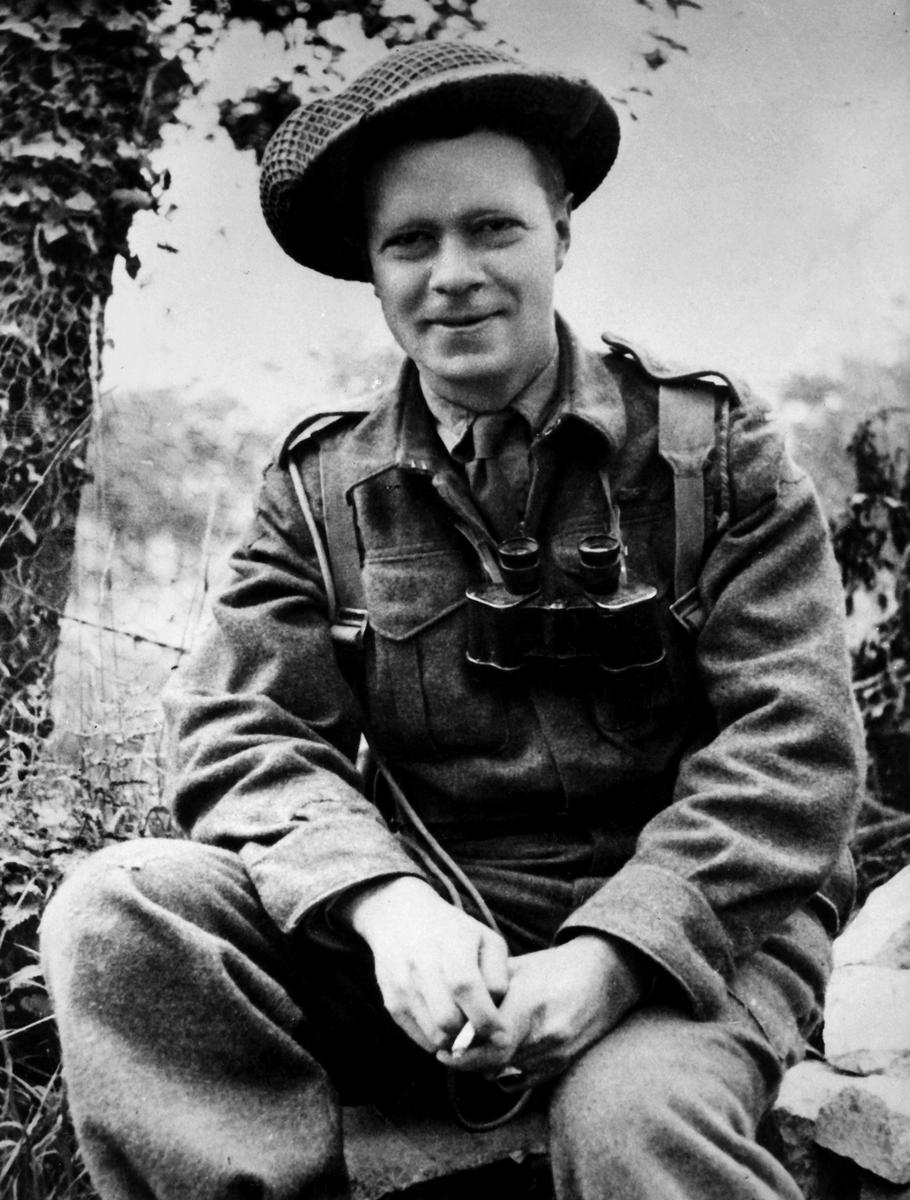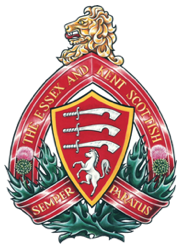Major F.A. Tilston, VC

Major Tilston photographed during The Second World War, around 1943.
Major Frederick Tilston, VC served with the Essex Scottish Regiment during the Second World War. He enlisted in 1940 at the age of thirty-four after working as a pharmacist at The Sterling Drug Company. Affectionately given the nickname “Mother” due to his high-pitched voice, Tilston was well-liked by all ranks of his regiment. Before seeing combat, he was the Adjutant for the Essex Scottish “HQ” Company in England and France. In this position, Tilston described working with the regiment’s two Padres to assist with burials and other tasks. He was also in charge of keeping the regimental war diary.
He was also wounded twice before he saw combat in March 1944. He was shot during training in England in December 1942, the bullet just missing his heart. In summer 1944, his eardrums were blown out and shrapnel lodged in his eye when a German land mine blew up his Jeep.
Tilston is most known for his contributions to the Essex Scottish Regiment’s offensive in the 1945 Battle of Hochwald Forest, his first combat action as a company commander. The battle was a part of a bigger operation called Operation BLOCKBUSTER, which aimed to clear the German presence along the west side of the Rhine River. The operation was bogged down by bad weather conditions, as the tanks and jumping-off points were obstructed by muddy roads. Tilston led “C” Company’s advance through the northern part of the forest to the enemy trenches. The gap was largely composed of open ground and hundreds of metres of barbed wire entanglement. They advanced without support of tanks to the second line of German defenses. While moving into the woods, Tilston was injured and urged his company to move on without him. However, he was able to get up and help to capture two German Company Headquarters. While holding these trenches, they endured significant grenade fire and counterattacks before the fight was over. At great personal risk, Tilston made at least six trips to an adjacent company to gather ammunition and grenades. Despite the danger he found himself in, “A” Company Commander, Major Paul Croff said that Tilston had a smile on his face as he collected whatever supplies were available. He was seriously injured during his last supply run when he took cover in a crater and a mortar bomb landed less than two metres away from him. However, he was able to convey instructions to the rest of his Company so that the mission could be completed. Despite later categorizing himself as “not a military man,” he was described as having enjoyed participating on the frontline overseas and was adept at staying calm under immense pressure.
By the end of the operation, “C” Company was reduced to a quarter of its original size with just twenty-six men surviving. Regardless of the perilous conditions in which he found himself, Tilston was described by one of his platoon leaders as “absolutely cool” and having “no regard” for enemy fire. Tilston’s injuries at the Hochwald were severe enough that he lost both of his legs. This injury, combined with his previous wounds, caused him to be sent back to Canada. Before leaving Europe, he was awarded the Victoria Cross for valour in the presence of the enemy, the highest and most prestigious award in the British/Canadian award system. The ceremony took place on 22 June 1945 at Buckingham Palace. Receiving the Victoria Cross was largely accredited to the accounts of his men, who spoke highly of him. Despite the honour being thrust upon him, Tilston remained humble about his actions. He stated later that the most important trait in earning a Victoria Cross was “inexperience.”
When asked about what he missed the most about Canada after such a long time away, he said watermelon. Upon his return, he was greeted with a parade in Windsor and much fanfare, along with his desired watermelon. Tilston returned to the pharmaceutical company, Sterling Drug, for whom he worked before the war. Major Alf Hodges, with whom Tilston served, also worked with him at Sterling Drug. Tilston eventually became President of the company.
Tilston was appointed Honorary Lieutenant-Colonel in 1956 and in 1963 Honorary Colonel of the Essex and Kent Scottish Regiment, a position which he held for twenty-eight years. Tilston died in Toronto, Ontario in 1992 at the age of 85. He was given a full military funeral. The Windsor-Essex community mourned his loss.
The old Windsor Armouries on University Avenue in Windsor was named after Tilston from 1993 to 2004. The new Armoury and Police Training Centre on Sandwich Street that opened in 2004 and is currently used by the Essex and Kent Scottish is named after Major F.A. Tilston, VC. In further tribute to Major Tilston, a commemorative dinner is held every March in honour of the Battle of Hochwald Forest and Tilston’s Victoria Cross. During this dinner, a toast of Canadian Club whiskey is made in his honour – Tilston’s favourite drink.
Story by Nicole Pillon, Canada Summer Jobs 2022 participant
with The Essex and Kent Scottish Regiment Association
Sources
- Notes by Regimental Major G.T. Childs, Essex and Kent Scottish, 1992
- Major F.A. Tilston Interview for Duty Nobly Done
- Duty Nobly Done: The Official History of the Essex and Kent Scottish Regiment by Sandy Antal and Kevin R. Shackleton, 2006: Chapter 12, 13, 15
- Essex and Kent Scottish Regiment Regimental Scrapbook
